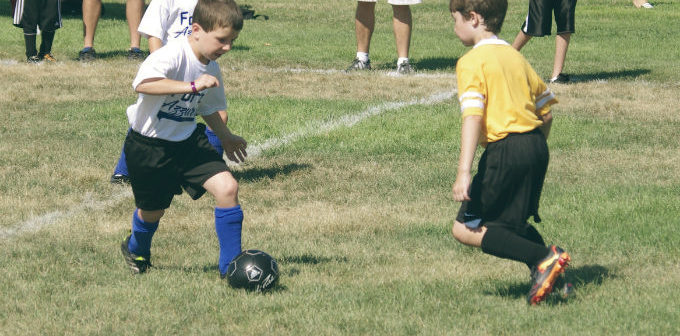“The Chinese don’t understand football,” my 10 year old lamented, after his latest coaching session. “They just want to run round having fun.”
I was reminded of the notorious words of Scottish soccer manager Bill Shankly. “Some people,” he said, “think football is a matter of life and death. I don’t like that attitude. I can assure them it is much more serious than that.”
Watching Noah and his friends play, it’s easy to see what he means. The Chinese kids goof around, sometimes laughing so much that they can’t run any more, while the other nationalities are focused on scoring goals and winning. It’s not an Asian thing: it’s noticeable that Korean kids are fiercely competitive.
This difference may help to explain the relatively poor performance of China’s national team. For a country with a fifth of the world’s population to be ranked 81st, below Uzbekistan and the Cape Verde Islands, is something of an embarrassment. (Though to be fair, billion-strong India is doing even worse, at 162nd.) But the stars of tomorrow are the street kids of today, and it’s not hard to see where the problem starts.
Firstly, it’s a question of space. In Britain kids will kick a ball around anywhere, using trees or lampposts or putting down their coats or jumpers to mark out the goals. (At my school, on the frequent occasions when a broken window led to a ban on balls, we would stuff a sweet packet with leaves, tie up the end and kick that around instead.) In Beijing any patch of grass is carefully tended, open ground is rare, and games can really only be played on pre-booked pitches.
Secondly, they don’t get to watch the game much. European and African kids mostly imbibe soccer with their mother’s milk, and unconsciously copy the moves they see, shaping their bodies like their idols as they play. Chinese children very often don’t even know the rules.
There’s a third thing I’ve noticed though. Chinese children would rather pass the ball to each other than shoot for goal. Western kids on the other hand will usually put their heads down and try to charge through the whole opposition single-handedly.
It’s curious, on the face of it, that the supposedly individualistic west should excel at team games, while communitarian China dominates sports like swimming and gymnastics. When you watch children play though, the reason becomes clear. Success in individual events requires hard work and obedience towards your coaches, while in team sports leadership and the willingness to take personal responsibility become more important.
But perhaps China has it right. Our local junior soccer team back home has signs at their matches reminding parents that the players are only children, and requesting them not to swear at officials or shout abuse at the opposition. That such signs are necessary (and believe me, they are) is a sad indictment of the attitude many parents bring to the sport.
And Britain is not alone in this problem. Dads yelling or even brawling at their children’s hockey or softball games are a depressingly familiar sight in the US and Canada. Too often they’re living out their own sporting fantasies vicariously through their kids. The children too will sometimes imitate the worst behavior of their heroes, complaining to officials or faking injury.
So maybe it’s better for children just to have fun, run around, and not care who wins. After all, it’s not a matter of life and death…
About the Writer
Andrew Killeen is a novelist and creative writing teacher. Originally from Birmingham, England, he studied at Cambridge University and now lives in Beijing with his wife and two crazy boys, Noah (age 10) and Joseph (age 7). In between he was at various times a DJ, festival director, positive parenting practitioner, and homeless support worker. His critically acclaimed historical novels are available from Dedalus Books.
This article originally appeared on page 43 of the 2016 June-July Issue of beijingkids magazine. Click here for your free online copy. To find out how you can obtain a hard copy, contact distribution@truerun.com.
Photo: sportsdadhub.com




